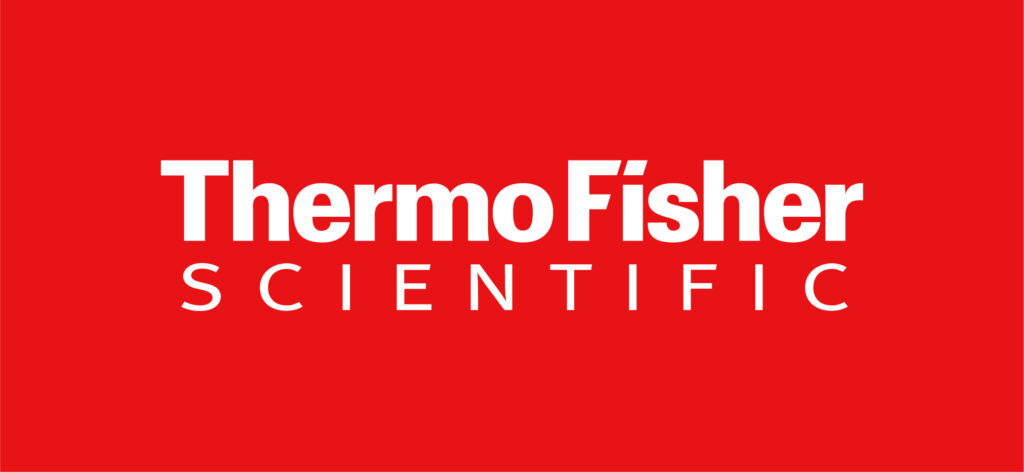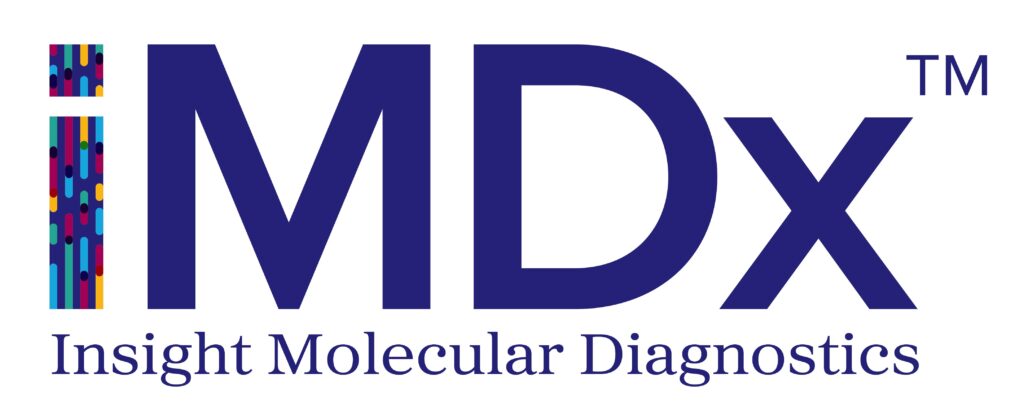Conference starts in -116 days
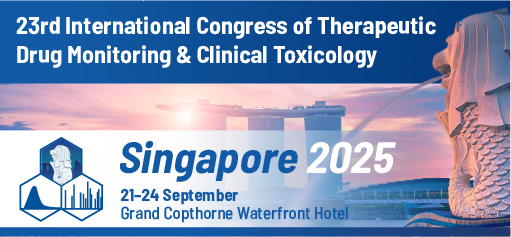

Industry workshops
The IATDMCT 2025 Congress features a range of dynamic sponsored industry workshops, open to all delegates at no additional cost. Simply select your preferred sessions during the registration process.
If you have already registered and wish to attend an industry workshop, please contact the congress organisers at iatdmct2025@expertevents.com.au.
Further workshops will be announced by email to IATDMCT members and registered delegates. Workshops will be limited in size and filled by a first come, first served basis.
Hitachi High-Tech Workshop
Sunday 21 September 2025
This workshop will be held at SingHealth Academy, Academia, 20 College Road, Singapore. A bus transfer from Grand Copthorne Waterfront will be available for workshop attendees and can be booked during the registration process.
HPLC for Beginners: Practical TDM from Sample Analysis to Treatment Decision
Learn how to perform the complete Therapeutic Drug Monitoring process using Hitachi High-Tech’s HPLC system. We will use voriconazole as our example analyte and walk through the entire process from sample preparation to clinical decision-making.
Hitachi High-Tech’s HPLC system makes HPLC accessible to everyone by:
- Automating technical set-up and quality checks
- Delivering reliable results in just 30 minutes
- Eliminating the need for specialized expertise
- Providing same-day results instead of waiting days for outsourced analysis
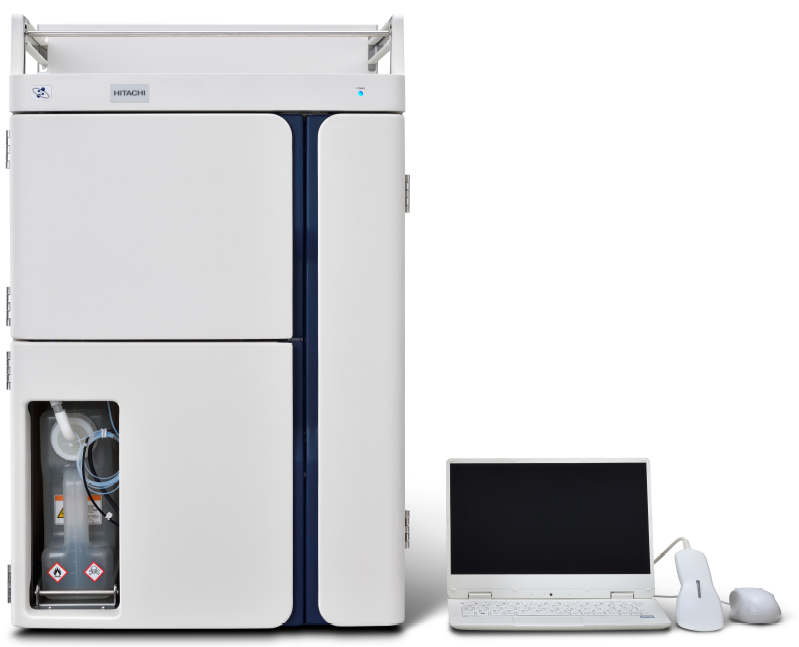
This hands-on experience will demonstrate the ease-of-use of Hitachi High-Tech’s HPLC instrument. Our current assay portfolio comprises 29 different drugs, including many not measurable with standard immunoassay kits.
Whether you are new to HPLC or an experienced practitioner, you will see how this system can expand your institution’s testing capabilities and improve patient care through faster turnaround times, enabling timely treatment decisions for your patients.
This workshop includes morning tea and lunch.
| Sunday 21 September | Hands-on Seminar (Workshop1) | 9:00am-10:30am |
| Sunday 21 September | Hands-on Seminar (Workshop1) | 11:00am-12:30pm |
| Sunday 21 September | Hands-on Seminar (Workshop1) | 1:00pm-2:30pm |
| Date | Meeting time | Workshop Time | Arrival time at the Congress Venue |
|---|---|---|---|
| Monday 22 September | 8:30 | 9:00-10:00 | 10:30 |
| Monday 22 September | 15:30 | 16:00-17:00 | 17:30 |
| Tuesday 23 September | 8:30 | 9:00-10:00 | 10:30 |
| Tuesday 23 September | 13:30 | 14:00-15:00 | 15:30 |
| Wednesday 24 September | 10:00 | 10:30-11:30 | 12:00 |
Additional workshop times
If you can’t make the wokrshops on Sunday, Hitachi High-Tech are also holding this workshop from 22 – 24 September! Please see information below.
- Meeting place: Hitachi High-Tech table diplay No.15
- Participation capacity: 4 people each workshop
- Workshop venue: Gaia Science Pte Ltd
If you would like to participate in a workshop, please contact the following person:
jun.tanaka.yj@hitachi-hightech.com
takuya.kawamura.rk@hitachi-hightech.com

Nutromics Workshop
Tuesday 23 September 2025
Pioneering wearable diagnostics: Advancing real-time drug monitoring
Presented by:
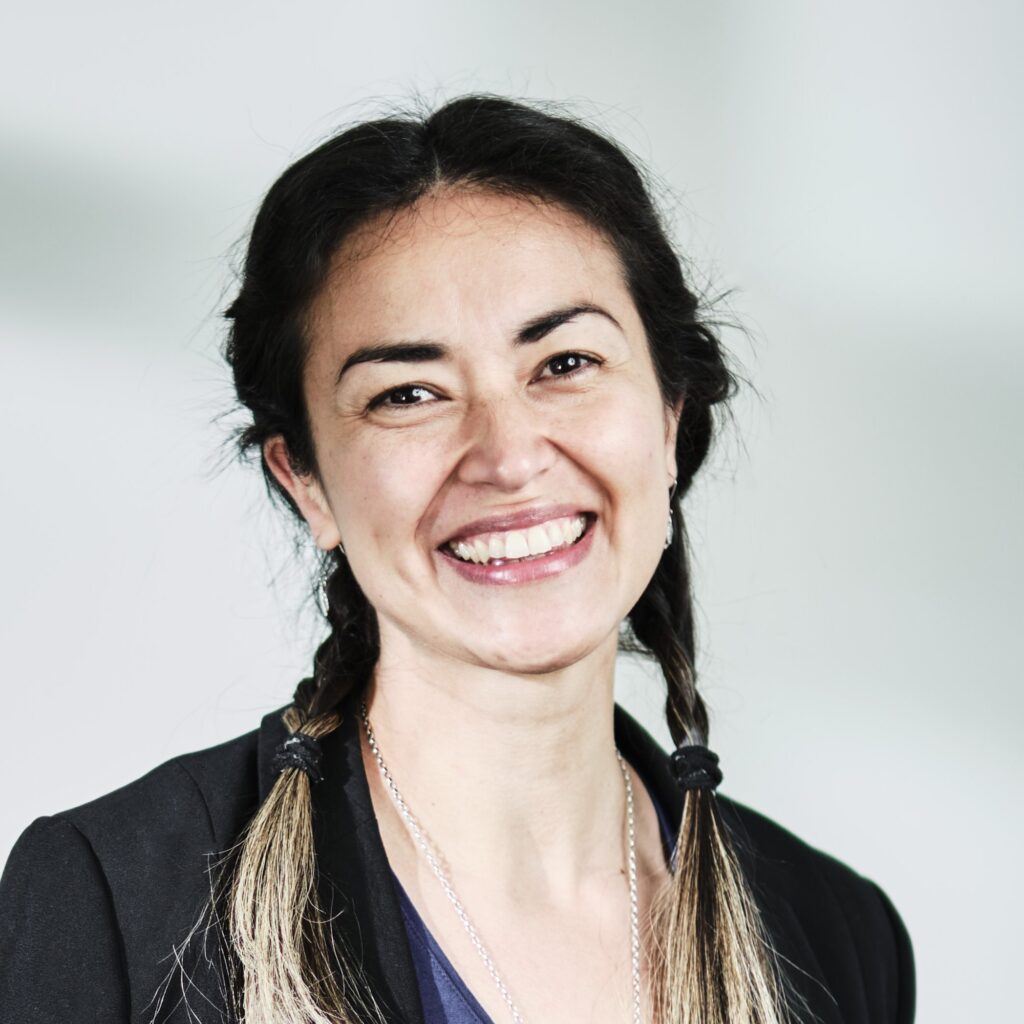
Dr Marsilea Harrison
Senior R&D Scientist, Nutromics
Dr. Marsilea Harrison is a Senior R&D Scientist at Nutromics, where she applies an interdisciplinary approach to sensor design towards clinical translation of wearable biosensors. In her role, she collaborates closely with engineering, software, electrochemistry, and clinical teams to advance wearable diagnostic technologies. With experience across both academia (Imperial College London, RMIT University, and the University of Auckland) and industry, she is dedicated to bridging fundamental science and application in pursuit of impactful healthcare solutions.
Join us for an overview of a novel wearable platform for continuous therapeutic drug monitoring using electrochemical aptamer-based (EAB) sensors. This emerging technology enables real-time measurement of drug concentrations in interstitial fluid, providing rich pharmacokinetic data directly at the point of care.
We will focus on its application to vancomycin, a critical antibiotic with a narrow therapeutic window and high interpatient variability. First-in-human data will be presented, showcasing dynamic drug concentration profiles and the potential to significantly improve clinical care.
The session will also explore preclinical results in multiplexed drug sensing, offering a look at how this platform could support broader personalized medicine strategies in acute care settings.
Insight Molecular Diagnostics Workshop
Wednesday 24 September 2025
Donor-derived cell-free DNA for personalized immunosuppression in transplantation
Applications of dd-cfDNA and opportunities for decentralized testing
Presented by:
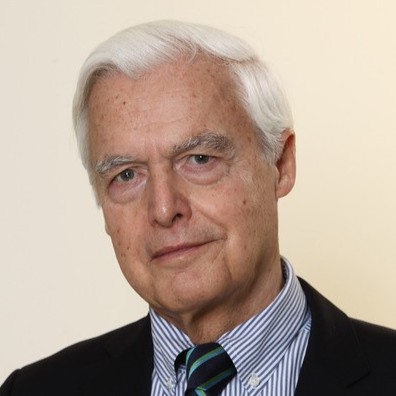
Michael Oellerich
Department of Clinical Pharmacology, University Medical Center Göttingen, Göttingen, Germany
Michael Oellerich, MD, HonMD, FAACC, FAMM, FFPath (RCPI), FRCPath, is a chemical pathologist and currently a Distinguished Research Professor at the Department of Clinical Pharmacology, Medical Faculty (UMG) of the George-August University, Göttingen, Germany. From 2012 to 2017 he had an appointment as Lower Saxony Professor of Clinical Chemistry. He was Chairman of the Department of Clinical Chemistry/Central Laboratory at UMG (1991-2012), and Dean of the Faculty of Medicine. He served as President of national and international professional organizations (IATDMCT, DGLM, DGKL, WASPaLM). He was Editor-in-Chief of Therapeutic Drug Monitoring (2003-2018) and currently is Associate Editor of this journal. His current research interests are in the field of therapeutic drug monitoring (e.g. cfDNA in cancer and donor-derived cell-free DNA in transplantation). He has authored more than 500 publications and has received various awards (e.g. Ludolf-Krehl Award, IATDMCT Charles Pippenger Award, WASPaLM Medal of Honor, WASPaLM Gold-Headed Cane, Sign of Honor, Professor Jordan Todoroff (BSCL). F. McCreary Prize for Interprofessional Teamwork, Genome Canada Transplant Consortium, University of British Columbia, UBC Health, Vancouver (Canada) 2022, Claus Roxin Award for Outstanding Contributions to International Liberal Academic Exchange, Munich 2023).
Donor-derived cell-free DNA (dd-cfDNA) is an effective diagnostic tool for serial surveillance of allograft health. Absolute quantification of dd-cfDNA is superior to fractional determination as it is not affected by changes of total cfDNA. Recently a new dd-cfDNA test kit for quick in-house determinations (GraftAssureTM) has been developed based on ddPCR with preselected SNPs, which enables measurements of fractional abundance (%) and absolute concentration (cp/ml). Significantly elevated absolute dd-cfDNA levels (cp/ml) were found in patients with acute or chronic antibody mediated rejection (ABMR), DSA negative patients with microvascular inflammation or BK-virus nephropathy. Low-grade T-cell-mediated rejection (TCMR) (IA) without vascular injury was not well detected in plasma in contrast to high-grade TCMR. The diagnostic performance of plasma dd-cfDNA for rejection detection is in general very good for kidney, heart, lung and liver transplant recipients (range of mean values: AUC-ROC 0.79 - 0.95, sensitivity 66 - 90 %, specificity 76 - 88 %, PPV 33 - 63 %, NPV 89 - 100 %). ABMR remains a major therapeutic challenge and causes about 20 - 30 % of allograft failures. Dd-cfDNA is useful for early ABMR detection, in particular in DSA+ patients. New treatment options using CD38-targeting monoclonal antibodies (CD38 mAB) are currently evaluated and dd-cfDNA has been used successfully as a companion biomarker in patients with chronic ABMR. In a recent randomized clinical trial longitudinal dd-cfDNA monitoring was performed for ABMR detection in kidney transplant recipients. The time from study inclusion to ABMR diagnosis was on average 2.8 months in the intervention group with dd-cfDNA guided biopsy and 14.5 months in the control group with clinician guided biopsy. In contrast to ABMR there was no significant elevation of dd-cfDNA in patients with IgA nephropathy (IgAN). Based on currently available evidence Medicare provides coverage for dd-cfDNA routine testing in the US. Dd-cfDNA facilitates personalized immunosuppression and cost-effective transplant recipient surveillance with the potential to reduce premature graft loss.

Geoffrey Bien
Director of Product Market Development, Oncocyte, Nashville, TN
Geoffrey Bien leads Product Market Development at Oncocyte, where he specializes in bringing innovative molecular diagnostics to market with a focus on transplant and oncology applications. With a background in genetics and a passion for decentralizing access to high-impact biomarkers, Geoffrey plays a key role in translating complex assay technologies into accessible, clinically actionable tools. At IATDMCT 2025, he will present GraftAssure™, a novel ddPCR-based dd-cfDNA testing solution designed for local lab implementation—advancing the vision of same-day, decentralized transplant surveillance worldwide.
Donor-derived cell-free DNA (dd-cfDNA) has demonstrated strong diagnostic and clinical utility in transplant rejection monitoring. As applications continue to expand into longitudinal surveillance and therapeutic response monitoring, the need for rapid, decentralized access to results is increasing. Technologies like digital PCR (dPCR) empower researchers to develop assays with lower detection limits, direct quantitation, and results within a single day turnaround, all features which are crucial for decentralizing access to dd-cfDNA testing.
In this session, we introduce GraftAssure™, a ddPCR-based test kit designed for local laboratory implementation, delivering same-day turnaround time and dual quantification of dd-cfDNA (absolute and fractional). Developed on the Bio-Rad QX600 dPCR system and leveraging preselected SNPs of high global minor allele frequency, GraftAssure enables more timely clinical insights and expands access to this critical biomarker beyond centralized reference labs—supporting a future where precision transplant care is both accessible and actionable at the point of need.
Clinical utility of dd-cfDNA testing
Presented by:
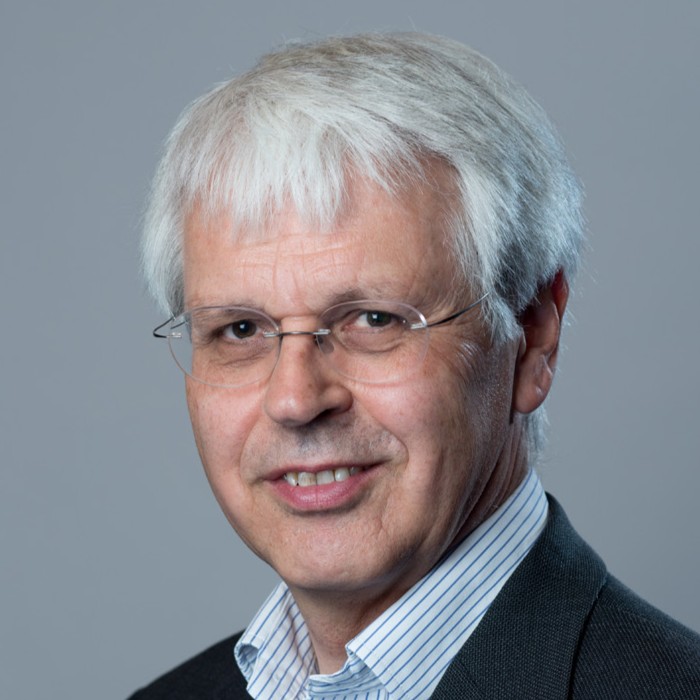
Prof Klemens Budde
Professor of Nephrology, Department of Nephrology and Intensive Care, Charité—Universitätsmedizin Berlin, Berlin, Germany
Klemens Budde MD is Deputy Medical Director of the Department of Nephrology and Medical Intensive Care at Charité Universitätsmedizin Berlin, Germany, where he holds an endowed professorship for pharmacodynamics on immunosuppression after kidney transplantation since 2006. After receiving his medical degree from Tübingen University, Germany, Dr. Budde completed training in Nephrology at Friedrich-Alexander University, Erlangen-Nürnberg and subsequently at the Charité, Humboldt University. Dr. Budde also completed a postdoctoral fellowship in Nephrology at Yale University, New Haven, Connecticut, USA. He possesses a board certification in Internal Medicine, in Nephrology and a Certification for Hypertensiology. He is a board member in several commissions of national and international societies.
Professor Budde had received the Hans-U.-Zollinger Research Prize of the German Association for Nephrology in 2004 for outstanding achievement in his field. In 2018 he became working group chair for Medicine and Care of the platform “Lernende Systeme”, Germany´s platform for artificial intelligence.
Prof. Budde’s main research interests include kidney transplantation, eHealth and genetic diseases of the kidney. He is the author or co-author of more than 450 journal articles, and has lectured nationally and internationally on numerous topics in transplantation.
ABMR remains a major therapeutic challenge and causes about 20 - 30 % of allograft failures. Dd-cfDNA has demonstrated clear clinical utility for early ABMR detection, in particular in DSA+ patients. A recent randomized clinical trial showed that longitudinal dd-cfDNA monitoring in DSA positive kidney transplant recipients significantly shortened the time to diagnosis (2.8 months in the intervention group with dd-cfDNA guided biopsy vs. 14.5 months in the control group with clinician guided biopsy) with excellent test characteristics. In contrast no significant elevation of dd-cfDNA was seen in patients with recurrent IgA nephropathy (IgAN), or calcineurin inhibitor nephrotoxicity. New treatment options using CD38-targeting monoclonal antibodies (CD38 mAB) are currently evaluated and dd-cfDNA has been successfully used as a companion biomarker in patients with chronic ABMR treated with a CD38 mAB. Based on currently available evidence Medicare provides coverage for dd-cfDNA routine testing in the US. In summary, dd-cfDNA facilitates a personalized immunosuppression, enables early detection of ABMR together with monitoring treatment success of a CD38 mAb and provides another tool for cost-effective transplant recipient surveillance with the potential to reduce premature graft loss.
Novel decentralized dd-cfDNA Testing
Presented by:
Shimadzu Workshop
Wednesday 24 September 2025
Quantitative and simultaneous plasma drug analysis with LC-MS/MS for therapeutic drug monitoring
Presented by:
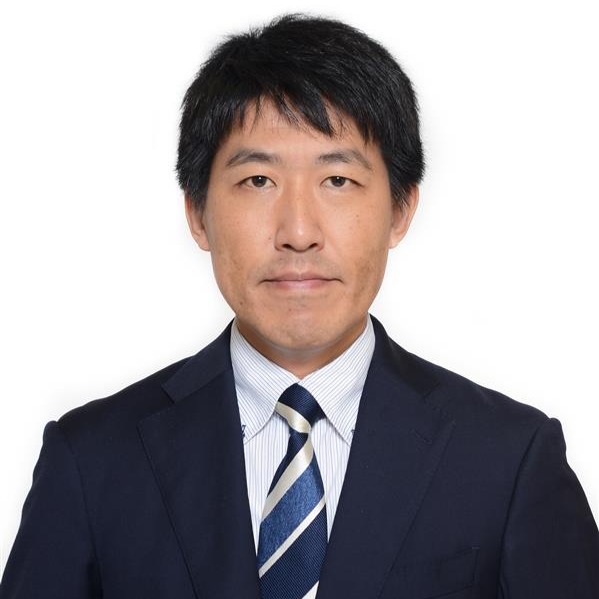
Masamitsu Maekawa
Nariyasu Mano, Department of Pharmaceutical Sciences, Tohoku University Hospital
Associate Professor Masamitsu Maekawa is an Associate Professor and Deputy Director in the Department of Pharmaceutical Sciences at Tohoku University Hospital, specializing in Clinical and Analytical Chemistry. He earned his BSc, MSc, and PhD from Tohoku University. Beginning his career as a pharmacist in 2009, he later became his research from 2010. He has authored 86 original papers including most cited and downloaded award paper and 12 review papers using clinical mass spectrometry. His contributions have earned him 18 awards, including the Encouragement Awards from the various societies, such as The Pharmaceutical Society of Japan and Japan Society of Clinical Chemistry.
Therapeutic drug monitoring (TDM) is an important approach in personalized medicine.
Recently, liquid chromatography/tandem mass spectrometry (LC-MS/MS) methods have come into clinical use including TDM.
However, the introduction of TDM with LC-MS/MS has presented several challenges.
One is method development in each laboratory.
Another issue is that LC-MS/MS requires pretreatment processing techniques and time.
Furthermore, preparation of optimal MS/MS instrument in your facility is problematic.
Therefore, in this seminar, we would like to show the basics of drug plasma LC-MS/MS analysis method development, automation pretreatment processing for LC/MS/MS, and the possibility of using a time-of-flight MS/MS equipment for TDM.
For plasma drug analysis, triple quadrupole MS/MS or quadrupole-time-of-flight hybrid MS/MS were used.
After the addition of internal standard, samples were pretreated with acetonitrile for protein precipitation with a fully automated sample preparation module.
The developed method, which was verified by method validation, was used to analyze drug plasma concentrations of clinical drugs.
For antipsychotics, anticancer drugs, immunosuppressants, and antifungal drugs, the simultaneous drug plasma concentration analysis methods were developed successfully by LC-MS/MS and applied to clinical practice and research for TDM.
There was no difference in plasma drug concentrations between automated pretreatment processing and human procedure. QTOF MS/MS might be also applied for quantitative plasma drug analysis.
LC-MS/MS is useful for drug analysis for clinical TDM practice, and it is evolving to be more easily implemented in clinical TDM.

Waters Workshop
Wednesday 24 September 2025
TDM by LC/MS: From Single to Multiplex and expansion to Novel Drugs
Presented by:

Fionn Quinlan
Waters APAC Clinical Manager
Fionn Quinlan is the Asia Clinical Market Manager for Waters Corporation and is based in Taiwan.
Since Fionn completed his post graduate studies in Dublin City University and Trinity College Dublin in the fields of molecular genetics, he has been continuously involved in the life science, diagnostics and forensic field for over 20 years.
Fionn works closely with leading hospitals, national reference laboratories , universities and forensic labs throughout Asia supporting the education and awareness of LCMS applications.
He is a serving member of the Asia Pacific Federation of Clinical Biochemistry commercial committee. His focus areas are New Born Screening, Therapeutic Drug Monitoring, Endocrinology, Forensic and Clinical Toxicology.
The scope of the talk is the use of liquid chromatography-tandem mass spectrometry (LC-MS/MS) for the quantification of Therapeutic Drugs. The subject matter will be covered using a timeline from the initial beginnings of LC-MS/MS for the quantification of immunosuppressive drugs through to its expansion to quantifying chemotherapeutic and psychotropic drugs and multiplexing. The final section will look to the future and how LC-MS/MS quantitative assays will be developed during clinical trials of personalized medicines including monoclonal antibodies and modern therapeutics.

Thermo Fisher Scientific Workshop
Wednesday 24 September 2025
Advance Your Clinical Research with Robust, End-to-End LC-MS Solutions
Presented by:
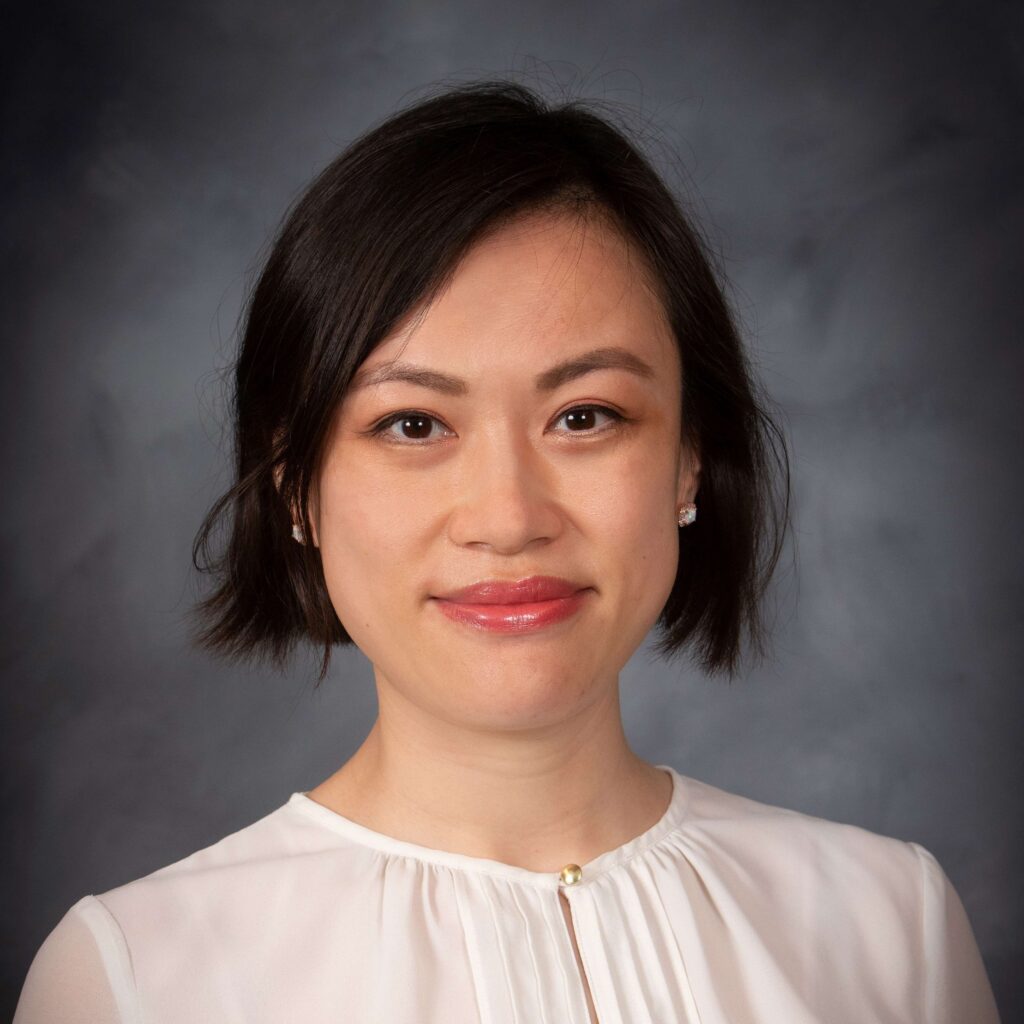
Thermo Fisher Scientific
Dr. Jingshu Guo is a trained mass spectrometrist with 10+ years of experience in LC-MS-based qualitative and quantitative analyses of small molecules, nucleosides, peptides, and intact protein. After joining Thermo Fisher Scientific, she worked on the method development, implementation, and optimization in clinical and toxicology-related fields. One of her current focuses is to develop fast quantification methods in small molecules, such as biomarkers, therapeutic drugs, and drugs of abuse in biofluids using LC coupled to triple quadrupole MS or high-resolution MS, and LC-free MS platforms.
Clinical research demands flexible instrumentation capable of analyzing a wide range of analytes, while delivering robust, sensitive, and time-efficient results. Thermo Scientific™ LC-MS solutions empower you to perform assays for critical applications such as monitoring immunosuppressant drugs, investigating disease biomarkers, and measuring endocrine function.
Join us for a Lunch Workshop on 24 September 2025, where you’ll explore Thermo Fisher Scientific’s comprehensive solutions—advanced instrumentations, sample preparation, and consumables—for key areas including endocrinology, clinical translational research, drugs of abuse testing, and therapeutic drug monitoring.
